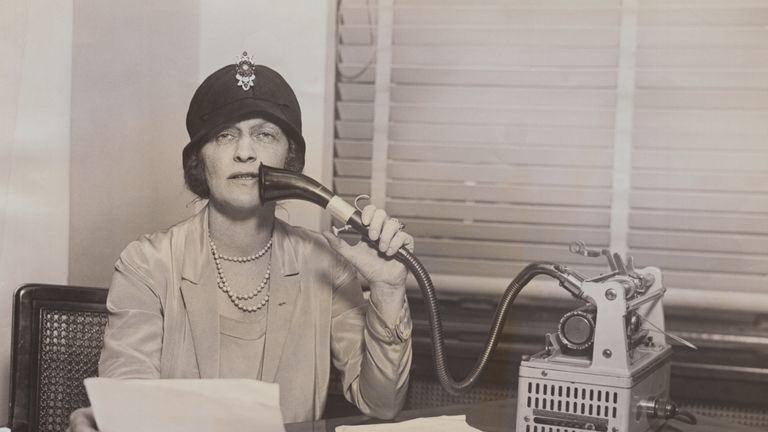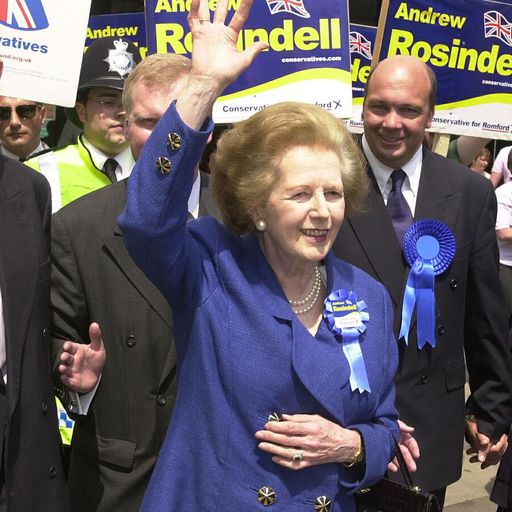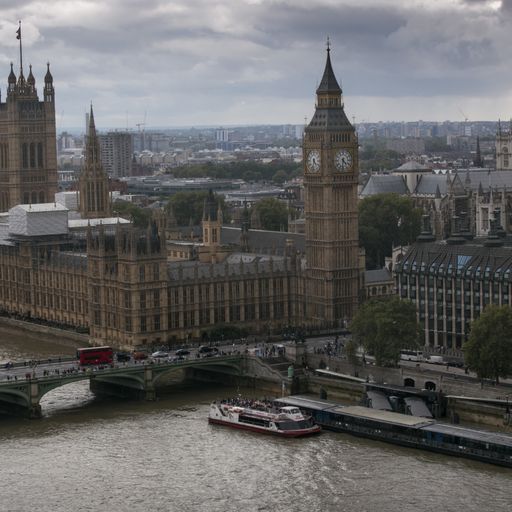Nancy Astor: 100 years since first woman was elected and took seat in Commons
Plymouth was the first constituency to elect a woman who took her seat, sending Nancy Astor to the Commons in 1919.
Friday 15 November 2019 20:36, UK
Exactly a century ago, the first woman who took her seat in the Commons was elected as an MP.
It was on 15 November 1919 that Nancy Astor won Plymouth, and two weeks later she entered parliament.
It came about a year after women won the right to stand in elections as well as to vote, and while 17 women stood the first time around, it was only Lady Astor who then took a seat.
Constance Markiewicz, who won for Sinn Fein, never took her place in the Commons.
But Lady Astor's pioneering election was not viewed so kindly by her peers in 1919.
Among those to be keen to get her out were Arthur Balfour, Lloyd George and Winston Churchill, some of whom said they would have preferred a "rattlesnake" in parliament.
Sir Winston told her: "We hoped to freeze you out."
One hundred years on, 50:50 Parliament, a campaign group which aims to get equal representation for women, has set up a New Girls Network to help female MPs as they navigate the corridors of power.
The buddy system puts women together regardless of political persuasion. While it was staffed by volunteers in its infancy, the scheme has now won funding from the Joseph Rowntree Reform Trust.
Frances Scott, founder of 50:50 Parliament, said: "The fight for political equality continues. The 50:50 New Girls Network helps combat the abuse. We hope everyone will encourage women to stand for elected office."
In the last parliament, women made up one-third of MPs.
In the current election, there are twice as many men known to be standing as women.
Several female MPs who stood down at the end of the last parliament said their decision was based on growing abuse which was directed at them because of their role.






